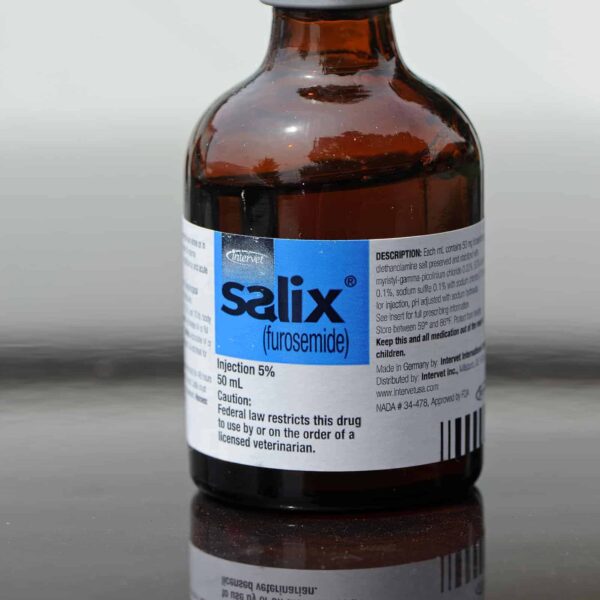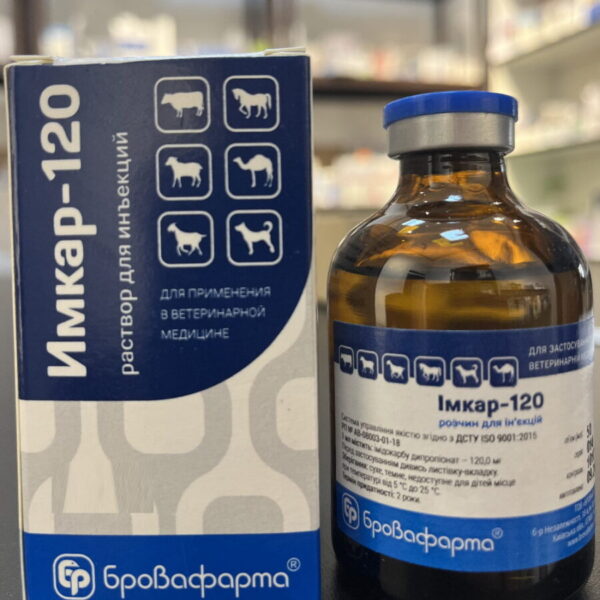Rapidexon – 100ml
Rapidexon is a product based on Dexamethasone sodium phosphate (2mg/ml or 0.2%) x 100 ml, Similar to Rapidexon de Fatro Lab, Is the dexa 0.2% more Extensively popularized in camel racing for its effectiveness with Dexaruzth
Pharmaceutical Form: Injectable Solution
Route of administration: IM, IV, IA and SC
Indications: Inflammatory and allergic processes, primary ketosis and induction of labor.
Pharmacodynamic properties: This preparation contains the sodium phosphate ester of dexamethasone, a fluoromethyl derivative of prednisolone, which is a potent glucocorticoid with minimal mineralocorticoid activity. Corticosteroids reduce the immune response by inhibiting the dilation of the capillaries, migration and function of leukocytes and phagocytosis. Glucocorticoids act on metabolism by increasing gluconeogenesis.
Interactions and incompatibilities
• Simultaneous use with non-steroidal anti-inflammatory drugs may aggravate ulcers in the digestive tract.
• Because corticosteroids may reduce the immune response to vaccines, dexamethasone should not be used in combination with vaccines or within two weeks of vaccination.
Indications and target species
Equine, Camel, Dogs and Cats: Dexamethasone can be used for the treatment of inflammatory and allergic processes.
Equine/ Camel: Treatment of arthritis, bursitis or tenosynovitis.
Contraindications
• Except in emergency situations, do not use in animals suffering from diabetes mellitus, renal failure, heart failure, hyperadrenocorticism or osteoporosis.
• Do not use in virosis during the viraemic phase or in cases of systemic mycosis.
• Do not use in animals suffering from gastrointestinal or corneal ulcers, or demodicosis.
• Do not administer intraarticularly when there are signs of fractures, bacterial joint infections or aseptic bone necrosis.
• Do not use in case of hypersensitivity to the active substance, to corticosteroids or to any excipients.
Rapidexon – 100ml Side effects
• Corticosteroids are known to have a wide variety of side effects. Although elevated single doses are usually well tolerated, prolonged administration may lead to severe adverse reactions, which may also occur with long-acting esters. Therefore, doses for medium to long-term treatments should generally be reduced to the minimum necessary to control clinical signs.
• Corticosteroids may cause iatrogenic hyperadrenocorticism (Cushing’s syndrome) during treatment, which causes a significant alteration in the metabolism of fats, carbohydrates, proteins and minerals; For example, redistribution of body fat, weight gain, weakness and loss of muscle mass and osteoporosis can occur. During treatment, effective doses suppress the hypothalamic-pituitary-adrenal axis. After treatment discontinuation, signs of adrenal insufficiency can occur which can lead to adrenal cortical atrophy and this may render the animal unable to cope properly with stressful situations. Therefore, care should be taken to minimize the problems of adrenal insufficiency after treatment withdrawal (for more information, see standard texts).
• Systemically administered corticosteroids can produce polyuria, polydipsia, and polyphagia, especially during the initial stages of treatment. Some corticosteroids may produce water and sodium retention and hypokalemia in case of prolonged use. Systemic corticosteroids have caused sedimentation of calcium in the skin (cutaneous calcinosis).
• The use of corticosteroids may delay wound healing and immunosuppressive actions may weaken resistance to infections or aggravate existing infections. In the presence of bacterial infection, concurrent antibacterial treatment is usually necessary. In the presence of viral infections, corticosteroids may aggravate the disease or accelerate its progression.
• Gastrointestinal ulcers have been reported in animals treated with corticosteroids and these ulcers may become worse with corticosteroids in patients receiving non-steroidal anti-inflammatory drugs and in animals with medullary trauma.
• Administration of corticosteroids may lead to increased liver size (hepatomegaly) with increased serum liver enzymes and may increase the risk of acute pancreatitis. Other possible adverse reactions associated with the use of corticosteroids include retention of placenta, metritis, subfertility, laminitis, reduction in milk production and changes in the biochemical and hematological parameters of the blood. There may be transient hyperglycemia.
Route of administration
• Intravenous, intramuscular, intraarticular, intrasynovial or local administration: Horses and camel
• Intramuscular injection: Dogs and Cats.
Special Precautions
If used for labor induction in cattle, a high incidence of placental retention may occur, with possible metritis and / or low fertility as a consequence.
Rapidexon – 100ml Wait time
Meat: Equine: 11 days
Milk: 72 hours
Conservation mode
Do not store above 25 ° C. Do not freeze. Keep the vial in the outer carton.
Rapidexon – 100ml Posology
Treatment of inflammatory or allergic processes: The average doses indicated below are recommended. However, the actual dose used should be determined according to the severity of the signs and the time they are present.
Equine: 0.06 mg / kg body weight, which corresponds to 1.5 ml / 50 kg.
Treatment of arthritis, bursitis or tenosynovitis: By intra-articular, intrasynovial or local injection in horses. Dose 1 ml-5 ml.
Dogs, Cats: 0.1 mg / kg body weight, which corresponds to 0.5 ml / 10 kg.
Doses may be repeated once at intervals of 24 to 48 hours if necessary. Other injection sites should be used for repeated dose administration.
Dosification & Administration for Race :
For professional application, read the article about dexa for race, Treat as 0.1% or 1mg / ml: Click Here
For safe application pre-race: 5 ml for 5 days, suspend 1 days before the race , but the last day :
apply Dexametasona 0.08mg/kg IV and also apply Furosemide 0.2mg/kg IV before the 5th hour before the extraction of samples for analysis for detection of drugs, blood and/or urine.
Recommended product with furosemide: Diuretic (Chinfield lab) o similary.
If you have any questions, consult your veterinarian or you can contact us for free advice.





Reviews
There are no reviews yet.